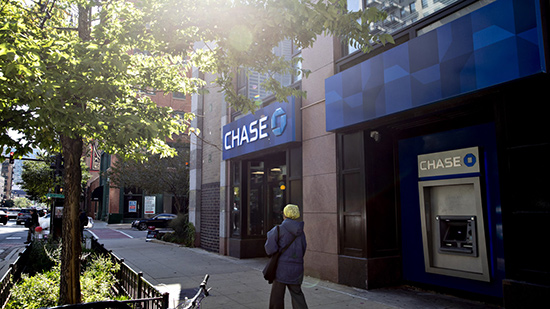
|
2018年,金融巨头摩根大通在美国雇佣了2万多人,其中约10%,或者说2100人曾经是罪犯。同时,如果首席执行官杰米·戴蒙的计划得以实现,就会有更多背负类似不光彩记录的人加入他们的行列。 今天,摩根大通就促进这些刑满释放人员再就业推出了几项重要措施。这家银行正式下达“禁止查问”命令,移除了对求职者犯罪记录的所有问题。它将拿出700多万美元,支持为曾经入狱者提供就业和生活技能培训的组织。同时,摩根大通将建立新的“政策中心”,后者类似于智囊机构,作用是就一些经济问题设计并推动监管调整。它的第一项计划就是对禁止重刑犯在金融等领域就业的规定进行改革。 在接受《财富》杂志采访时,戴蒙把这次行动称为摩根大通全面振兴经济计划的一部分,而该计划的内容包括将金融、培训和专项技能导入现金匮乏的社区中,特别是在底特律和芝加哥。他说,这些行动让摩根大通的领导层更多地了解到了重刑犯恢复“公民身份”所面临的挑战。戴蒙指出:“他们找不到工作,租不起房子。在社会上,他们处于边缘位置。” 就在摩根大通采取上述行动之际,民主、共和两党也越来越共同支持犯罪-司法改革,而后者可能有助于刑满释放人员更好地融入经济之中。这些改革包括减轻对一些轻微犯罪行为的惩罚,以及推出可能有助于人们更容易消除犯罪记录的措施。纽约大学法学院布伦南司法研究中心的报告显示,美国约有7000万曾经被捕或认罪的劳动适龄人口。研究表明,有犯罪记录的人通过首轮面试的可能性要低得多。2018年的一项研究称,刑满释放人员的失业率为27%,是整体失业水平的数倍。 摩根大通强调,其重点是为有较轻犯罪记录的人创造获得入门级工作的机会,比如酒后驾车、扰乱社会治安或持有少量毒品(他们还没有考虑过让惯犯或诈骗犯从事敏感的金融工作)。摩根大通为合格人员打通就业渠道的初步试点将以芝加哥为主,2017年该行就在这里启动了耗资4000万美元的社区振兴行动。 新政策机构 海瑟·希金鲍托姆曾经在奥巴马治下的国务院任职。她的新身份是摩根大通政策中心的负责人,在这里,她将开始处理与刑满释放人员有关的问题。希金鲍托姆对《财富》杂志表示,她的首要任务是和联邦存款保险公司合作,放宽为这些人再就业设置障碍的条例。其他重点工作还包括在州和地方层面全面推广“禁止查问”措施;自动消除轻微犯罪记录以及修改允许法院扣押轻微犯罪者驾照的规定,因为这项惩罚措施往往会让人无法获得或保住工作。 最后,该政策中心还会处理和经济包容性有关的其他一系列问题。戴蒙说,他的预想是该中心将“触及所有造成收入波动的问题,包括纳税、医疗保健以及修理自己的汽车。”希金鲍托姆补充道:“我们的标准是你是否有一技之长或独特的经验。我们考虑到了退休储蓄和经济适用房等问题,并在这些领域运用了非常多的数据。” 是什么让刑满释放人员再就业成为首要任务呢?戴蒙说原因之一就是法学教授、辩护律师以及平等正义行动执行主任布莱恩·史蒂文森。2018年,史蒂文森向摩根大通高层介绍了犯罪-司法改革和种族不平等问题。戴蒙回忆说,听众们“绝对是哑口无言、眼含热泪。是制度的不公正触动了他们”。(财富中文网) 译者:Charlie 审校:夏林 |
In 2018, financial giant JPMorgan Chase hired more than 20,000 people in the U.S. Roughly 10% of them—about 2,100—had a criminal history. And if CEO Jamie Dimon’s plans are realized, those employees will eventually be joined by many more co-workers with similar blotches on their records. JPMorgan today is announcing several major steps to encourage second-chance hiring for those with criminal records. The bank is officially "banning the box"—removing all questions about criminal records from its job applications. It will steer more than $7 million toward organizations that provide job- and life-skills training to the formerly incarcerated. The bank is also launching a new “policy center,” a think tank of sorts that will design and advocate for regulatory changes around certain economic issues. Its first agenda item: reforming rules that effectively bar former felons from employment, in finance and elsewhere. In an interview with Fortune, Dimon described the new campaign as an offshoot of the bank’s widening economic-revitalization campaign, an effort that has involved steering financing, training and expertise to cash-starved neighborhoods, particularly in Detroit and Chicago. Those campaigns, he said, had exposed more of the bank’s leaders to the challenges faced by “returning citizens” with felonies on their records. “They can’t get jobs, they can’t rent a home,” Dimon said. “Socially, they’re on the margins.” The bank’s moves come at a time of growing bipartisan support for criminal-justice reforms that could help better integrate former offenders in the economy. Those include reductions of penalties for some minor misdemeanors, as well as measures that could help people more easily expunge their criminal records. There are about 70 million working-age adults in the U.S. with either an arrest record or a criminal conviction, according to a report by the Brennan Center for Justice. Research suggests people with such blemishes are much less likely to make it past a first job interview. And a 2018 study put the unemployment rate among formerly incarcerated people at 27%, many times higher than the wider jobless rate. JPMorgan stresses that its focus is on building opportunities in entry level jobs for people whose past offenses were relatively minor—think DUIs, disorderly conduct, or low-level drug possession. (Hiring hardened criminals or fraudsters to work in sensitive financial positions remains well out of bonds.) The bank’s early pilot programs in building an employment pipeline for candidates that qualify will be focused in Chicago, where JPMorgan launched a $40 million neighborhood revitalization campaign in 2017. A new policy arm Heather Higginbottom, a former State Department official during the Obama administration, will begin tackling issues related to returning citizens in her new role as head of the JPMorgan Chase PolicyCenter. At the top of the agenda, she told Fortune, is working with the Federal Deposit Insurance Corp. to ease rules that make it hard for financial institutions to make second-chance hires. Other priorities, she said, include campaigning at the state and local level for broader ban-the-box rules; making criminal-record expungement automatic for low-level convictions; and changing rules that enable courts to suspend the drivers’ licenses of minor offenders—a punishment that often hamstrings someone’s ability to get or hold down a job. The PolicyCenter will eventually take on a range of other issues related to economic inclusion. Dimon said he envisions the center “digging into everything that creates income volatility—tax payments, healthcare, having to get your car fixed.” Higginbottom added, “The criteria is: Do we have unique expertise and experience? We’re looking at things like retirement savings, affordable housing, areas where we bring a lot of data to bear.” What made second-chance hiring the first priority? Dimon said one catalyst for the decision was Bryan Stevenson, the law professor, defense attorney, and executive director of the Equal Justice Initiative. Stevenson spoke to top JPMorgan Chase executives in 2018 about criminal-justice reform and racial inequities. People in the audience “were absolutely speechless and teary-eyed,” Dimon recalled. “The injustices of the system—that motivates people.” |






